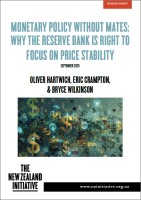Podcast: What's driving grade inflation?
In this episode, James talks to Craig Mellare and Abdul Razeed, senior lecturers at the University of Sydney Business School, about their empirical study on grade inflation in Australian higher education. They discuss findings showing that grades have risen significantly over the past decade despite no improvement in student ability, and explore the institutional pressures driving this phenomenon including student evaluation systems, time constraints on academic staff, and the need to manage student appeals and expectations. Read more













